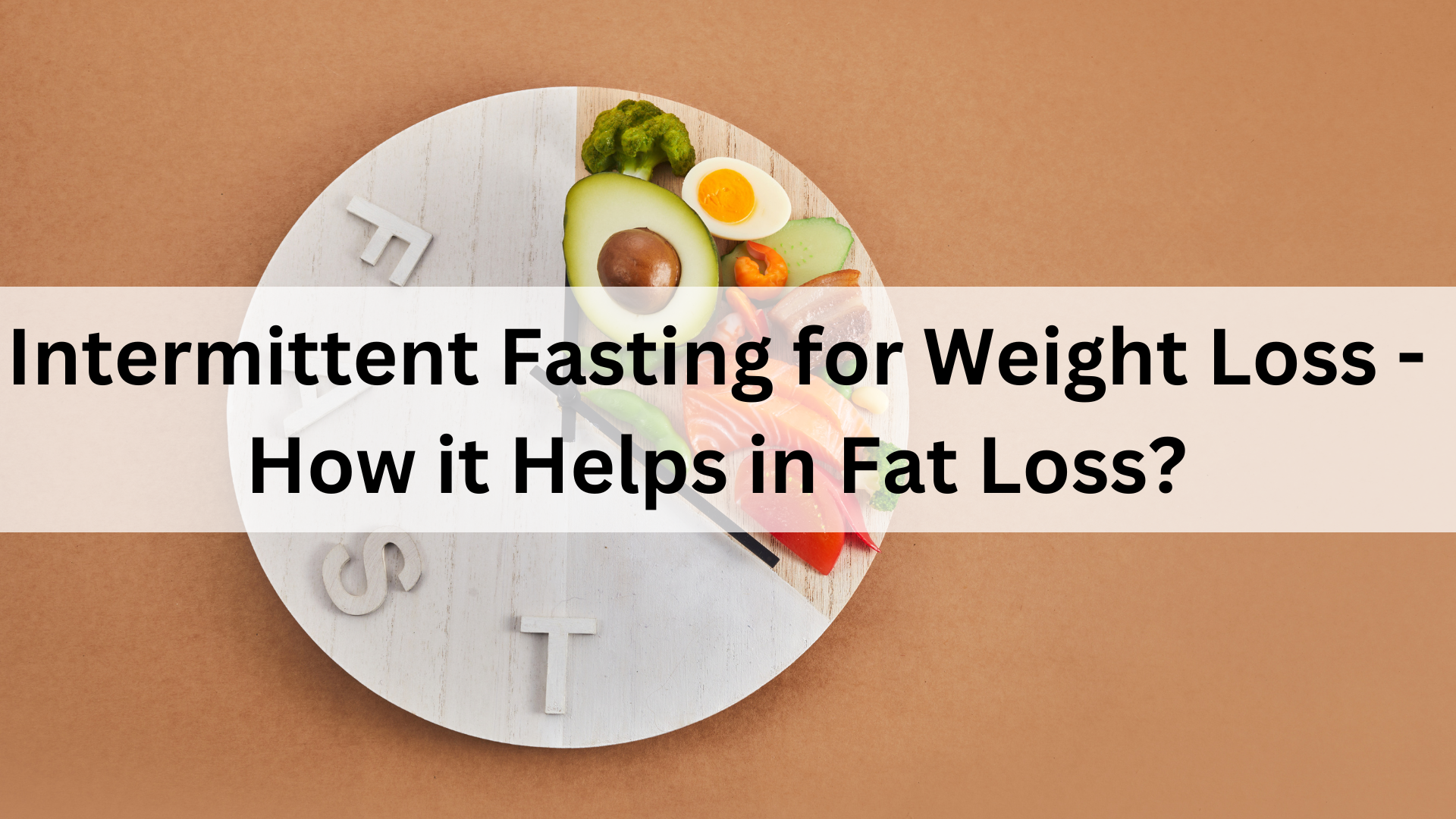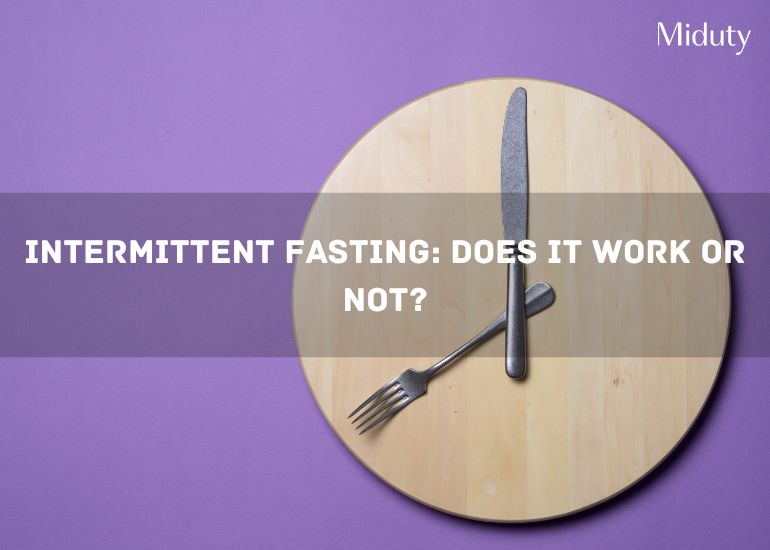Postpartum Weight Loss: 5 After Delivery Foods for Indian Mothers

Introduction | Foods for Postpartum | Postpartum Weight Loss Plan | Conclusion
Food after delivery and postpartum weight loss are common concerns for every new mother. As you navigate this exciting yet challenging transition, it's essential to prioritize your nutrition to ensure both you and your baby thrive. Here, we'll explore five incredible foods that not only support postpartum weight loss but also provide the energy and nourishment you need during this precious time.
Becoming a mother is nothing short of miraculous, but it can also bring a whirlwind of changes to your body. Your body was designed to carry and nourish life, and that extra fat you may notice is there to give you energy for breastfeeding and caring for your little one. It's completely normal to feel overwhelmed as you adjust to these changes while focusing on your new baby and family. The good news is that you don't need to stress about counting calories or following strict diets. Instead, let's look at some wholesome foods that can help you lose weight after pregnancy and feel your best.
5 Best After Delivery Foods for Indian Mothers
1. Leafy Greens

Leafy greens like spinach and chard are packed with vital vitamins and minerals such as calcium, iron, and magnesium-nutrients your body craves during pregnancy and breastfeeding. Broccoli is another excellent option for promoting liver health. Incorporating a variety of these vegetables into your meals not only nourishes you but also supports healthy digestion, which is particularly beneficial since many women experience constipation postpartum. Smoothies and juices made with leafy greens are also a convenient, hydrating way to boost your nutrient intake.
Recipe: Sautéed Spinach and Tomatoes with Runny Eggs
Ingredients:
- Fresh tomatoes
- Fresh spinach
- Eggs
- Salt and pepper
- Apple cider vinegar (ACV)
- Water (optional)
Instructions:
- In a pan, lightly sauté some fresh tomatoes and spinach over medium heat. Cook for a few minutes until the tomatoes are softened and the spinach is wilted.
- Once the vegetables are ready, crack a few eggs into the pan. Be careful to leave the yolks runny, allowing the delicious flavors from the tomatoes and spinach to coat the eggs.
- After a couple of minutes, transfer the sautéed mixture onto a plate. Sprinkle a pinch of salt and a little bit of pepper on top to enhance the flavors.
- For an extra kick, drizzle some apple cider vinegar (ACV) over the dish. You can also enjoy a glass of diluted ACV with water alongside your meal.
2. Dhal (Pulses)

Pulses may be small, but they're a powerhouse of protein and essential nutrients. When soaked before cooking, they become easier to digest and are rich in iron. For vegetarian mothers, they are an excellent source of plant-based protein and fiber. Just be sure to soak them well-sprouting them for 24 hours can enhance their digestibility.
Recipe: Dhal Soup
Ingredients:
- 2 tbsp coconut oil or ghee
- 1 onion, chopped
- 2 cloves garlic, crushed
- 5-6 tomatoes, chopped
- 1 cup soaked red lentils
- 2.5 cups vegetable stock
- 1.25 cups coconut milk
- 1 tsp ground cumin
- 1 tsp dry ground turmeric (or 3 tsp fresh)
- 1 tsp garam masala
- 1 tsp salt
- ½ tsp pepper
- ½ tsp chopped chili or ¼ tsp chili powder (optional)
Method:
- Heat coconut oil or ghee in a pot. Add onion and garlic; sauté for 2-3 minutes.
- Stir in cumin, turmeric, and garam masala; cook for 1 minute.
- Add tomatoes and lentils, then pour in vegetable stock and coconut milk. Stir well.
- Bring to a boil, then reduce heat and simmer for 25-30 minutes until lentils are tender.
- Stir in salt, pepper, and optional chili.
- Enjoy warm, with bread or rice if desired.
3. Fish

Fish like Rawas (Indian salmon) and Bangda (Indian mackerel) are excellent sources of omega-3 fatty acids, which are crucial for balancing hormones and reducing inflammation. However, due to mercury concerns, limit your fish intake to twice a week.
Baked Rawas Recipe
Ingredients:
- 2 Rawas fillets
- 2 tbsp butter (or olive oil)
- Juice of 1 lemon
- 1 tsp fenugreek leaves
- Salt and pepper, to taste
- Optional: 2 cloves garlic (minced), 1 tsp dried basil, 1 tsp cumin, ½ tsp turmeric
Instructions:
- Preheat Oven: Heat to 350°F (175°C).
- Prepare Dish: Grease a baking dish with butter or olive oil.
- Season Fish: Place rawas fillets in the dish. Drizzle with lemon juice and melted butter. Season with fenugreek, salt, pepper, and optional spices.
- Cover & Bake: Cover with aluminum foil and bake for 15-20 minutes, or until the fish flakes easily.
- Serve: Enjoy warm, garnished with fresh herbs or lemon wedges.
4. Yogurt, Curd, and Kefir

These probiotic-rich foods are fantastic for digestive health. Probiotics help combat issues like gas and bloating, which can make you feel larger than you are. With their protein and calcium content, they're essential for a postpartum diet. If you're lactose intolerant, curd and coconut kefir are great alternatives.
Buy Now Probiotics and Prebiotics Fiber
Recipe: Tasty Breakfast Bowl
Spoon plain yogurt or curd into a bowl, add a handful of berries and soaked nuts, and drizzle some raw honey on top for sweetness.
5. Herbs and Spices

Many say not to eat spices if you are breastfeeding. While you should not overeat, it does not mean that all you can eat is boring bland food. Don't shy away from flavor! Herbs and spices can elevate your meals while offering numerous health benefits, including increased metabolism and stable blood sugar levels.
Research even suggests that your baby may become more accepting of these flavors when they start solids!
Ingredients:
- 1 cup milk: Raw cow's milk or coconut milk works well.
- 3 tablespoons chia seeds: Nutrient-dense and rich in omega-3s.
- ¼ teaspoon cinnamon: Adds flavor and health benefits.
- 1/8-1/4 teaspoon vanilla extract: Enhances sweetness and aroma.
- Honey to taste: Natural sweetener.
Method:
-
Combine chia seeds and milk in a bowl. Soak overnight or for a few hours until the seeds absorb the liquid and thicken.
-
Stir in cinnamon and vanilla extract.
-
Mix in honey to taste.
-
Enjoy as a healthy breakfast or snack, and consider topping with fresh fruits or nuts.
Herbs and spices like turmeric, cinnamon, and cardamom not only add flavor to your postpartum diet but also support digestion and weight loss. These spices can be easily incorporated into food after delivery for Indian mothers, such as curries or caffeine-free chai tea by simply brewing the spices without the tea leaves. Golden milk, made with turmeric, is another excellent way to boost your nutrition and metabolism. Once your baby is weaned, you can reintroduce hot spices like chili, which are known to enhance metabolism and aid in postpartum weight loss.
When planning your after delivery food, it's crucial to be mindful of toxins that can hinder your postpartum weight loss diet plan. Opt for organic foods whenever possible to avoid exposure to harmful pesticides, ensuring the health and safety of both you and your family.
Postpartum Weight Loss Diet/Plan
Creating a postpartum weight loss diet requires a delicate balance of proper nutrition, exercise, and self-care. T Childbirth takes a significant toll on a woman's body. A well-balanced postpartum weight loss diet provides the necessary nutrients to support healing, such as proteins for tissue repair and vitamins and minerals for overall recovery. While some women naturally lose weight after childbirth, many may struggle to shed excess pounds gained during pregnancy. A postpartum weight loss diet helps guide women toward a healthier weight in a safe and sustainable manner.
A postpartum weight loss diet is essential for women as it supports physical recovery, promotes healthy weight management, enhances mental well-being, improves physical fitness, establishes healthy habits, supports breastfeeding, and improves overall health.
Daily Guidelines
|
Aspect |
Recommendation |
|
Caloric Intake |
2,300-2,500 calories if breastfeeding; adjust based on activity level. Aim for a slow weight loss of about 1 pound per week. |
|
Hydration |
Drink up to 3 liters of water daily. Monitor urine color (pale yellow is optimal). |
|
Prenatal Vitamins |
Continue taking prenatal vitamins or a postnatal-specific vitamin. |
|
Caffeine |
Limit to 300 mg or less per day. |
|
Alcohol |
Limit alcohol intake; wait 2-3 hours post-drink before breastfeeding. |
|
Whole Foods Focus |
Choose predominantly whole foods; minimize processed and high-sugar items. |
Weekly Meal Plan
|
Day |
Breakfast |
Snack |
Lunch |
Snack |
Dinner |
|
Day 1 |
Oatmeal topped with berries and a spoon of nut butter |
Apple slices with almond butter |
Quinoa salad with mixed vegetables and grilled chicken |
Greek yogurt with honey |
Baked salmon with steamed broccoli and brown rice |
|
Day 2 |
Scrambled eggs with spinach and whole-grain toast |
Handful of mixed nuts |
Lentil soup with a side of whole grain bread |
Carrot sticks with hummus |
Stir-fried tofu with mixed veggies over brown rice |
|
Day 3 |
Smoothie with spinach, banana, protein powder, and almond milk |
Cottage cheese with pineapple |
Turkey and avocado wrap with whole-grain tortilla |
Celery sticks with peanut butter |
Grilled chicken with sweet potatoes and green beans |
|
Day 4 |
Chia pudding topped with sliced fruits |
Hard-boiled egg |
Spinach and chickpea salad with olive oil dressing |
Trail mix (nuts and dried fruit) |
Shrimp tacos with cabbage slaw and avocado |
|
Day 5 |
Whole grain pancakes topped with fresh berries |
Sliced bell peppers with guacamole |
Brown rice bowl with black beans, corn, and salsa |
Yogurt with granola |
Zucchini noodles with marinara sauce and turkey meatballs |
|
Day 6 |
Overnight oats with chia seeds and banana |
Handful of walnuts |
Grilled vegetable and quinoa bowl |
Sliced cucumbers with tzatziki |
Baked chicken thighs with roasted Brussels sprouts |
|
Day 7 |
Smoothie bowl with granola and seeds |
Fruit salad |
Chicken and vegetable stir-fry with brown rice |
Rice cakes with nut butter |
Vegetable lentil curry with basmati rice |
Physical Activity Plan
|
Day |
Activity |
Duration |
|
Day 1 |
Walking or light jogging |
30 minutes |
|
Day 2 |
Postpartum yoga or pilates |
30-45 minutes |
|
Day 3 |
Strength training (body weight or light weights) |
30 minutes |
|
Day 4 |
Rest or light stretching |
N/A |
|
Day 5 |
Walking or swimming |
30-45 minutes |
|
Day 6 |
Cardio (cycling or brisk walking) |
30 minutes |
|
Day 7 |
Family activity (e.g., playing in the park) |
1 hour |
Along with these postpartum diet plan, you can also try these additional way to lose weight.
- Recovery is crucial. Adjust your plan based on how you feel and your energy levels.
- Aim for good quality sleep when possible; consider napping when the baby sleeps.
- Engage with a healthcare professional or a nutritionist for personalized advice, especially if you have specific health concerns.
- Practice mindfulness to manage stress and emotional eating. Consider journaling your thoughts or using meditation apps.
Conclusion:
Navigating postpartum recovery while focusing on weight loss can feel overwhelming, but with the right foods and approach, it's entirely achievable. Prioritize nutrient-dense, wholesome foods that support your body's healing and provide the energy you need for motherhood. By following a balanced postpartum weight loss diet and incorporating regular physical activity, you can regain your strength and confidence while embracing the journey of motherhood.




